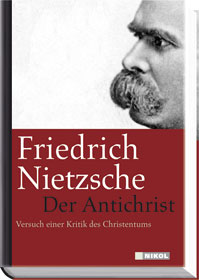‘Christian ethics was like a time bomb ticking away in Europe, a Trojan horse waiting for its season’. —William L. Pierce
‘1945 was the year of the total inversion of Aryan values into Christian values’. —Joseph Walsh
The articles of The Occidental Observer are academic. But Tobias Langdon’s article yesterday on how the left has begun to devour itself is fascinating.
Yesterday I was also watching Monster Bug Wars. As I dream to exterminate all the arachnids in my Parrishesque paradise, it gives me pleasure to see fights to the death between them. The war that is currently waged on the left, as narrated in Langdon’s article, also gives me pleasure: it is like seeing two different species of spiders fighting to the death: whoever wins devours, still alive, the other.
Langdon’s article deals with the cultural war that transgender men are winning over radical feminists—including mulatto, lesbian and Jewish feminists that one would imagine are, in the inverted epoch of today, the most powerful.
Currently, trans men have begun to place themselves at the top of the pyramid thanks to Orwell’s observation: all men are equal but some are more equal than others. These men only have to declare themselves women and in several states of the US they are allowed to enter their bathrooms, changing rooms and showers. Langdon mentions a tranny, who still has a penis and a couple of balls, who is very interested in the feminine tampons that pubertal girls leave in the baths. Of course: in our sick society he’s untouchable…
Tucker Carlson and the radical feminists complain a lot that trans men are also beginning to dominate women’s sports. The most impressive phrase of the article by Langdon in the Observeris that ‘Stale pale males who were at the very bottom of the victimhood hierarchy have leapt to the very top of it in a single bound, thanks to the superpower of transgenderism’. So true: the radical feminists who dare to criticise these trans men are now being deplatformed from social media with typical accusations that their complaints are ‘hate’.
The whole freak show really looks like the videos of two arachnids fighting to the death with the fittest cocooning the other alive and, after injecting a poisonous cocktail into the beaten spider, sucking its body as a protein shake. Read Landon’s article and then watch a clip of Monster Bug Wars!
A woman commented about Langdon’s article at the Observer: ‘We need no further proof that Satan rules the world…’ I would argue the opposite: at last Christ rules. Why? Because white nationalists have a rather superficial idea of the history of Christianity. Their knowledge of our parents’ religion does not go beyond historical books at the level of those Reader’s Digest books for families of pious Christians that I find in the library my father left behind.
A deeper look beyond the Reader’s Digest level reveals that the reversal of the scale of values that has now maddened the West originated nothing less than in the Gospel. Every time some Christians wanted to apply the Gospel message in its purity, the medieval Church, in all its wisdom, crushed them: they knew how dangerous that would have been for the health of pre-Reformation Europe.
I am not asking white nationalists to read the ten volumes of Karlheinz Deschner on the history of Christianity. If they only read the best historical novel that has been written about the period to which I refer in the previous paragraph, they would realise what I mean. The Name of the Rose of Umberto Eco, contains a passage that throws great light on what happens today with the empowering of trans men: until recently, the most dispossessed creatures of the kingdom of God.
Adso: ‘But you were speaking of other outcasts; it isn’t lepers who form heretical movements’.
William of Baskerville: ‘The flock is like a series of concentric circles, from the broadest range of the flock to its immediate surroundings. The lepers are a sign of exclusion in general. Saint Francis understood that. He didn’t want only to help the lepers; if he had, his act would have been reduced to quite a poor and impotent act of charity. He wanted to signify something else. Have you been told about his preaching to the birds?’
Adso: ‘Oh, yes, I’ve heard that beautiful story, and I admired the saint who enjoyed the company of those tender creatures of God’, I said with great fervour.

William of Baskerville: ‘Well, what they told you was mistaken, or, rather, it’s a story the order has revised today. When Francis spoke to the people of the city and its magistrates and saw they didn’t understand him, he went out to the cemetery and began preaching to ravens and magpies, to hawks, to raptors feeding on corpses’.
Adso: ‘What a horrible thing! Then they were not good birds!’
William of Baskerville: ‘They were birds of prey, outcast birds, like the lepers. Francis was surely thinking of that verse of the Apocalypse that says: “I saw an angel standing in the sun; and he cried with a loud voice, saying to all the fowls that fly in the midst of heaven: Come and gather yourselves together at the supper of the great God; that ye may eat the flesh of kings, and the flesh of captains, and the flesh of mighty men, and the flesh of horses, and of them that sit on them…!’’’
Adso: ‘So Francis wanted to incite the outcasts to revolt?’
William of Baskerville: ‘No, that was what Fra Dolcino and his followers wanted [the violent and revolutionary wing of the Fraticelli], if anybody did. Francis wanted to call the outcast, ready to revolt, to be part of the people of God. If the flock was to be gathered again, the outcasts had to be found again. Francis didn’t succeed, and I say it with great bitterness. To recover the outcasts he had to act within the church; to act within the church he had to obtain the recognition of his rule, from which an order would emerge, and this order, as it emerged, would recompose the image of a circle, at whose margin the outcasts remain’.
______ 卐 ______
The dialogue between these two Franciscan monks of the 14th century hits the nail regarding the POV of this site: the two epigraphs that appear at the top of this entry.
The season of the horse of Troy of which Pierce wrote, that is to say the complete inversion of Aryan values into Gospel-inspired values such as those of a St. Francis, has finally arrived. Following the resignation of Pope Benedict XVI in 2013, a papal conclave elected the Argentinean Jorge Mario Bergoglio as his successor. As Bergoglio chose Francis as his papal name in honour of St. Francis of Assisi, my father, a great fan of the saint of Assisi, expressed a few words of surprise. He wondered while watching the 2013 ceremony how it was possible that only until the 21st century did an elected pope choose the name of the most beloved saint for Catholics? Short answer: because the Catholic Church was not openly suicidal as it is today.
Since the native language of this Argentinean pope is Spanish, when I hear him speak I understand him better than those who don’t know the language. It really seems to me that, for the first time in the history of the Church, the purest message of the Gospel has reached the Vatican. I remember very well, for example, the occasion when Bergoglio, already Pope, declared that the theme of poverty (the lepers of yore) was at the very core of the Gospel. I also remember his words about homosexuals (Bergoglio is the first pope to use the Newspeak term ‘gay’: a word that was not used to designate them when he and I were children) and the trans men who visited him in the Vatican.
What they say in the forums of white nationalism is false: that the Pope has betrayed his principles. On the contrary: The dream of gathering again the ravens, magpies and birds feeding on corpses has been fulfilled.
When I discovered white nationalism the term used to designate the enemy was the very generic ‘liberalism’. In his Observer article Langdon uses the term currently in vogue, ‘cultural Marxism’. Recently I suggested that the most accurate term would be ‘neo-Christian’. This term covers the scale of values of both Christians and liberals: the last (e.g., the tranny) shall be the first and the first shall be the last. After all, Francis wanted to call the outcast, ready to revolt, to be part of the people of God. If the flock was to be gathered again, the outcasts had to be found again. Francis didn’t succeed, and I say it with great bitterness. To recover the outcasts he had to act within the church; to act within the church he had to obtain the recognition of his rule, from which an order would emerge, and this order, as it emerged, would recompose the image of a circle, at whose margin the outcasts remain.






